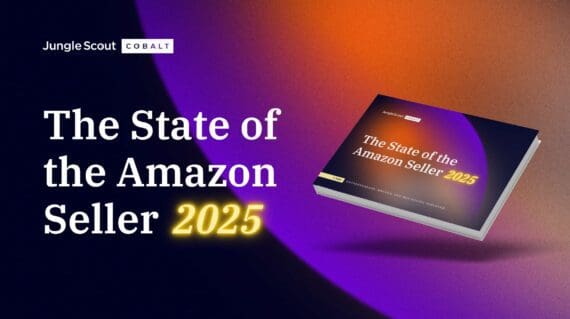Content
expand_moreA brand’s reputation on Amazon directly impacts its sales, customer trust, and long-term success.
As an Amazon seller, maintaining a strong reputation can enhance visibility, increase conversions, and build customer loyalty.
However, enterprise sellers face unique challenges, including counterfeit products, unauthorized resellers, and review manipulation, which can damage their brand’s credibility.
In this guide, we’ll explore how a strong brand reputation benefits sales, the common threats brands face on Amazon, and the best strategies for protecting and enhancing your reputation using the right management tools.
How a strong brand reputation affects sales and visibility
A strong reputation is a significant asset for any Amazon seller. Customers prefer brands with positive product reviews, high seller feedback scores, and consistent quality of their products. Here’s how brand reputation management directly influences purchasing decisions and visibility on Amazon.
Higher trust leads to higher conversions
Potential buyers are likelier to choose a brand with a positive reputation over an unknown or generic competitor.
Social proof, such as customer reviews and ratings, is crucial in increasing conversions. Potential customers want to hear from other customers about their experience with your product, and customer experience is a big deciding factor.
The majority of consumers read product reviews before purchasing. More positive reviews build trust and reduce potential buyers’ hesitation.
Additionally, a well-established brand often sees higher average order values (AOV) because customers trust the quality and reliability of its products. Repeat customers are more likely to make bulk purchases or explore other offerings from the same brand. Engaging with customers through excellent customer service and proactively addressing negative feedback can also help boost loyalty, leading to long-term profitability.
Amazon’s algorithm favors brands with strong reputations
Amazon’s search algorithm prioritizes sellers with a strong track record of customer satisfaction. Factors such as positive product reviews, high seller ratings, and low return rates contribute to higher organic rankings.
This creates a cycle where increased visibility leads to more sales, reinforcing a brand’s credibility and boosting its positive reputation.
Amazon’s A9 algorithm assesses factors such as keyword relevance, conversion rates, and customer feedback when ranking product listings. Brands that consistently maintain a high seller rating and positive product reviews are more likely to appear in top search results, giving them a competitive edge over lesser-known sellers.
Using tools like Jungle Scout Competitive Intelligence, brands can gain valuable insights into their standing compared to competitors and optimize their strategies for better SEO and performance.
By analyzing competitor pricing, keyword usage, and review trends, brands can make data-driven decisions to improve their rankings and sales velocity.

A strong reputation protects against unauthorized sellers
A well-established brand is less vulnerable to unauthorized resellers hijacking listings, undercutting prices, or misrepresenting products. Unauthorized sellers can disrupt pricing stability and damage a brand’s credibility, making reputation management crucial for long-term success.
Sellers must actively monitor their product listings to ensure no unauthorized sellers are on their listings. Unauthorized sellers often dilute a brand’s image by offering subpar customer service, delayed shipping, or even counterfeit products, leading to negative reviews and declining customer trust.
By actively monitoring and enforcing MAP policies, brands can maintain price stability and prevent market devaluation. Issuing cease-and-desist letters or enrolling your brand with the Amazon Brand Registry to report unauthorized sellers can further protect a brand’s reputation.
Common threats to your Amazon brand reputation
Even well-established brands face challenges on Amazon. Understanding common threats can help sellers take proactive steps to protect their reputation.
Negative reviews and poor ratings
Customer reviews and seller feedback significantly impact a brand’s credibility. Negative feedback, whether legitimate or fraudulent, can deter potential buyers. To maintain their positive reputation, brands should actively respond to legitimate concerns while disputing fraudulent reviews.
To mitigate the effects of negative reviews, brands should implement a proactive review management strategy. This includes monitoring customer sentiment, promptly responding to customer complaints, and improving product quality based on recurring feedback.
Providing detailed and accurate product descriptions can also help manage customer expectations and reduce instances of negative reviews.
Additionally, brands can use Amazon’s “Request a Review” feature to encourage customers to leave product reviews.
Jungle Scout’s Review Automation tool streamlines this process by sending timely and automated Amazon-ToS-approved review requests, helping you increase the number of reviews for your products.
Unauthorized resellers and counterfeit products
Unauthorized resellers can undercut pricing, leading to Buy Box loss and reduced profit margins. Additionally, counterfeit products mislead customers, resulting in negative reviews and loss of trust in the brand.
Counterfeit products not only impact sales but also pose potential safety risks to consumers. Many brands have suffered reputational damage due to low-quality knockoffs being sold under their name. Enrolling in Amazon’s Transparency program can help combat counterfeit sales by verifying the authenticity of each unit sold.
Declining price stability
Unauthorized sellers frequently violate MAP policies, leading to price wars and reduced brand value. Since the Amazon marketplace does not enforce MAP policies for third-party sellers, brands must take control of price monitoring.
Regularly auditing product listings and working with authorized retailers to maintain consistent pricing can prevent devaluation and ensure a stable market position.
How to protect your brand reputation on Amazon
Proactive reputation management is essential for maintaining customer trust and long-term success. Here are key strategies for protecting and enhancing your Amazon seller account and Amazon products.
Join Amazon Brand Registry and Transparency
Amazon Brand Registry gives brands greater control over their product listings, helping prevent unauthorized changes and intellectual property (IP) infringements. Additionally, the Transparency program ensures that only authentic products reach customers, preventing counterfeit sales and protecting a brand’s credibility.
Registering your brand also unlocks access to A+ Content, allowing enhanced product descriptions, comparison charts, and multimedia content. This can improve conversion rates by giving customers valuable insights into your products, reducing uncertainty, and reinforcing trust.

Monitor customer reviews and customer sentiment
Tracking customer reviews and sentiment helps brands identify recurring issues, optimize product descriptions, and enhance customer engagement. By analyzing feedback trends, brands can improve their offerings and enhance customer engagement.
Track unauthorized resellers and counterfeit products
Unauthorized resellers can disrupt pricing, mislead customers, and harm brand reputation. Seller tracking and price monitoring through Jungle Scout Cobalt allow brands to detect and address violations promptly.
Best practices for removing unauthorized sellers include sending cease-and-desist letters, reporting violations through the Amazon Brand Registry, and using legal enforcement when necessary.
Use competitor analysis to strengthen brand positioning
Understanding competitor strategies allows brands to stay ahead in reputation management. Jungle Scout’s Competitive Intelligence tool provides valuable insights into competitor pricing, product reviews, and optimization tactics, enabling brands to refine their strategies for better performance.
By leveraging competitive data, brands can adjust their positioning, strengthen their Amazon presence, and enhance customer trust.
Start protecting and managing your Amazon brand reputation today
Managing brand reputation on Amazon requires proactive monitoring, customer engagement, and advanced management tools. By implementing review management strategies, protecting against unauthorized resellers, and optimizing brand visibility, sellers can maintain a strong reputation and drive long-term success.
Leverage Jungle Scout’s powerful tools to protect your brand and stay ahead of reputation threats.
Brian Connolly is an Amazon seller, ecommerce expert, and writer for Jungle Scout. He lives in the New Jersey Shore area with his wife and cat. When he isn’t writing advice online for aspiring and experienced Amazon sellers for Jungle Scout, he spends his free time boating, fishing, and selling boating-themed items on his Amazon business.










